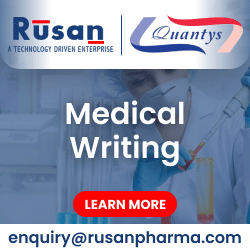Overview of medical content writing & leading medical writing CROs offering medical writing for clinical trials among other clinical trial services.
Q1. What is medical writing & language translation in clinical trials?
Medical writing for clinical trials involves the creation of various documents that communicate complex medical information clearly and accurately. Medical writing services include protocols, informed consent forms, clinical study reports (CSR), and regulatory submissions. In the field of clinical research, medical content writing plays a decisive role in effectively presenting complex scientific information to various stakeholders.
The importance of medical writing for clinical trials is an integral part of the clinical research process. It involves the accurate interpretation and communication of biostatistics and clinical trial data in a concise manner. The primary objective of medical content writing is to support the regulatory success of a product by ensuring that all relevant information is accurately documented and presented in a clear and understandable format.
Language translation in clinical trials plays a crucial role in clinical trial patient recruitment services by translating clinical documents into various languages to ensure that diverse participants and regulatory authorities can comprehend and utilize them. Accurate translation is critical for informed consent and effective communication throughout the clinical study, as it helps to engage non-English speaking participants and meet regulatory requirements in different regions. In this context, patient recruitment services for clinical trials benefit significantly from language translation, as it facilitates better access and engagement in the recruitment process.
Clinical research organizations (CROs) that offer medical writing and language translation services provide a wide range of support to pharmaceutical, biotechnology, and medical device companies. These services are crucial in ensuring the successful documentation and submission of clinical trial data to regulatory bodies. There are many different types of CROs that offer medical writing and language translation services, such as large & mid sized global CROs, specialized CROs and boutique CROs.
Large & mid sized global CROs are well-established organizations that offer end-to-end clinical research services, including medical writing. These CROs typically have extensive global networks and expertise in handling and providing regulatory and compliance services across various countries. These organizations typically offer specialized services including clinical trial recruitment services and regulatory and medical writing services while focussing on providing more personalized support to their clients.
Specialized CROs tend to focus on specific therapeutic areas or stages of drug development and may offer highly tailored clinical data management services. Boutique CROs are smaller organizations that focus on niche therapeutic areas or specialized services, making them highly personalized and flexible medical writing CROs. Medical writing and language translation are essential components of clinical trials, patient recruitment services and regulatory submissions. CROs offering these services ensure that clinical data management is conducted accurately and aligned with regulatory standards as well as providing regulatory and compliance services. This focus on specialized patient recruitment services for clinical trials enables more effective engagement and support for participants, enhancing the overall success of clinical research efforts.
Q2. What is a clinical study report (CSR) and what are its key components?
In medical writing, CSR stands for Clinical Study Report. It is a detailed document that outlines the methodology, results, and conclusions of a clinical trial. A clinical study report (CSR) is created as part of the process of submitting applications for new medical treatments to regulators. This document is a crucial part of medical writing (scientific writing), it summarizes the results of a clinical trial, clinical studies and is written at the end of the investigation. Each section is essential for providing a comprehensive overview of the study and its outcomes, including clinical data management (CDM) and clinical trial data management services, ensuring transparency and facilitating regulatory review.
A Clinical Study Report (CSR) in scientific and medical writing services typically includes the following key components:
Title of the page comprising study title, protocol number, and date. An index, which is an outline of the contents of the clinical report.
A brief summary of the clinical study called synopsis, including objectives, methods, results and conclusions of the clinical studies.
An Introduction page which comprises the background information, rationale for the study and its objectives.
Method section which consists of the detailed description of the study design, clinical trial patient recruitment, interventions, and statistical analyses.
Final results which encompasses presentation of clinical study findings, including clinical research data, demographics, efficacy, safety data, and statistical analyses.
Discussing the interpretation of the clinical research trials results, implications for clinical practice, and comparisons with other clinical research data studies.
Conclusion is the summary of the clinical research data's key findings and their relevance in clinical study.
References are the list of all cited literature including published papers, pubmed data, clinical regulatory writing articles providing regulatory and medical writing services. Appendices are additional supporting materials, such as raw data, study instruments included to support regulatory and compliance services.
The CSR is vital for submitting regulatory documents to health authorities like the FDA or EMA and providing regulatory and compliance services to the clients. It synthesizes complex clinical trial data, providing a clear picture of the study's findings.
It plays a major role in facilitating communication between various stakeholders, including researchers, sponsors, and regulatory bodies. The information in it can inform future research projects helping to advance medical science. It can also serve as a foundational document for writing manuscripts for peer-reviewed journals, aiding in the dissemination of research findings.
Q3. What challenges do medical writers face when preparing regulatory documents?
From the perspective of clinical research organizations (CROs), medical writing services offered by medical writers present several challenges that can affect the quality and efficiency of clinical research documentation. Here are some key challenges:
Intricate guidelines and regulations: CROs must adhere to stringent guidelines set by regulatory bodies such as FDA, EMA, PDMA and TGA for effective regulatory and compliance services. With a focus on regulatory and medical writing services, professionals in the field must remain vigilant about the constantly evolving guidelines related to scientific and medical writing services.
Analyzing complex clinical data: Accurately interpreting complex data requires clarity and precision in documentation and terminologies, particularly within a clinical research organization (CRO) that offers clinical research services such as clinical trial recruitment services, medical writing services and regulatory services for clinical trials. Effective clinical data management (CDM) is crucial for the success of clinical research trials, which involve intricate scientific data and require cross-disciplinary knowledge from fields like pharmacology. Converting this information into clear, accurate, and regulatory-compliant documents can be a challenging task.
Meeting tight deadlines: Tight submission deadlines can pressure writers, leading to errors. The need to adhere to specific formatting guidelines and templates set by regulatory bodies often demands rapid turnaround in medical content writing, for delivering high-quality clinical writing services which can affect timely completion. This is especially important when preparing documents for regulatory services for clinical trials and ensuring compliance with regulatory and compliance services.
Coordination with Experts: Coordinating is essential for medical writing CRO where interaction with diverse stakeholders such as clinicians, statisticians and regulatory affairs officials can lead to communication challenges and differing priorities.
Language Barrier: For international CROs, effective language skills and the ability to craft concise, direct sentences are vital for delivering quality clinical writing services. In medical writing services, proficiency in language and familiarity with medical terms are crucial, especially when preparing documents for clinical trial regulatory services or other medical writing tasks. When working on international studies, cultural nuances and language barriers can complicate the process of medical writing for clinical trials and scientific writing.
Clinical research organizations (CRO) conducting patient recruitment services for clinical trials and offering medical content writing are responsible for conducting thorough review processes and producing accurate, timely, and high-quality clinical and regulatory documents that adhere to the highest scientific standards and are understandable to both scientific and lay audiences. These challenges require medical writers to possess strong analytical skills, adaptability of clinical data services, and effective communication abilities for providing efficient scientific and medical writing services.
Q4. How does language translation impact the accuracy and reliability of patient-reported outcomes (PROs) in global clinical trials?
Language translation plays a crucial role in the accuracy and reliability of patient-reported outcomes (PROs) in global clinical trials and clinical trial recruitment services particularly within clinical data management (CDM) frameworks. In language translation for patient recruitment for clinical trials writings, maintaining clarity of questions and accurately translating them ensures that PRO questionnaires are clear and understandable in the chosen language, reducing the risk of misinterpretation.
Effective translation in clinical research involves more than just linguistic accuracy, it requires cultural relevance to ensure that questions resonate with the cultural context of participants, thereby reflecting true experiences and perceptions. This is particularly important in clinical trial patient recruitment services, where ensuring consistency in translation across different languages helps maintain the integrity of the data collected, allowing for valid comparisons and analyses between populations.
Additionally, regulatory compliance demands that Patient-Reported Outcomes (PROs) be available in local languages, ensuring all participants can provide informed feedback. Proper translation of study reports on patient recruitment services for clinical trials also helps in the reduction of bias by minimizing language-related misunderstandings, thereby accurately reflecting the patient experience. Accurate translation is crucial for statistical validity, as flawed translations can lead to unreliable data, compromising the overall validity and reliability of study results. When participants clearly understand the questions, clinical trials patient recruitment services see increased participant engagement, resulting in more meaningful responses and higher quality data.
The clinical research organizations (CROs) develop PRO measures for clinical trial services that may become standard tools for clinical trials, clinical regulatory writing, clinical trial patient recruitment services, scientific writings. When used globally, these measures require translation and cultural adaptation (TCA) through a process known as linguistic validation (LV), ensuring conceptual and content validity across different languages. The Process Subcommittee established a rigorous LV process to meet regulatory expectations and standardize translation practices. Many translation and medical writing CROs conduct linguistic validation, methods and terminology that can vary, leading to inconsistencies in data validity. In summary, careful and culturally appropriate language translation is essential to ensure that PROs accurately capture patient experiences, ultimately supporting the reliability of clinical trial outcomes.
Q5. What are the various clinical research organizations or pharma companies offering medical writing services?
As part of CROs offerings, clinical research organizations also provide clinical writing services and scientific and medical writing services to support the comprehensive needs of clinical research trials and clinical studies. Whether through large global organizations or specialized boutique CROs, companies seeking medical writing and clinical data management services can find a range of expertise to meet their clinical research and regulatory documentation needs.
Some CROs offering medical writing services are:
Rusan Pharma: Quantys offers a wide range of world-class clinical trial services for medical writing including report preparation in E3 and eCTD formats, regulatory dossier preparation, and document archival, essential for efficient clinical data services and clinical trial regulatory services.
Quotient Science: Quotient Sciences is a clinical research organization that offers medical writing, provides clinical study reports as per the FDA guidance for industry along with related submissions using eCTD specification, ensuring compliance with clinical regulatory writing standards.
Factory CRO: Factory CRO is a medical writing CRO which has an expert team of medical writers that offers medical writing for clinical trials, and specializes in clinical research services. It also provides regulatory and medical writing, technical writing, and clinical report writing, all vital for effective clinical trial data management services.
Evidera: Evidera specializes in health communication and medical writing for clinical trials, its broad expertise includes clinical data management services, regulatory services for clinical trials, and CDM service solutions. It ensures high-quality deliverables across clinical research projects, including clinical trials patient recruitment services and clinical trial patient recruitment initiatives.
TransPerfect: TransPerfect offers comprehensive clinical data management services by collaborating with clinical research organizations and pharmaceutical companies, offering clinical research services including medical and life sciences translation and language services. Its CDM service includes medical writing services for clinical trials, clinical report writing, medical paper writing & regulatory medical writing.
Icon Plc: Clinical data management services at Icon is a clinical research organization providing medical translation and regulatory medical writing services. It is a medical writing CRO offering medical writing for clinical trials, clinical report writing, scientific writing, medical research writing and writing on regulatory services for clinical trials.
Spaulding Clinical: Spaulding Clinical offers a comprehensive range of clinical trial services focused on protocol preparation, clinical report writing, and medical paper writing. It specializes in medical writing for clinical Trials, including regulatory services for clinical Trials, clinical trial regulatory services, and scientific writing. Its expertise includes providing clinical data services, CDM services, and clinical trial data management services, such as clinical study reports, patient narratives, and pharmaceutical medical writing.All Suppliers












 Rusan Pharma: Over 30 years of specializing in the treatment of Addiction and Pain Management.
Rusan Pharma: Over 30 years of specializing in the treatment of Addiction and Pain Management.








